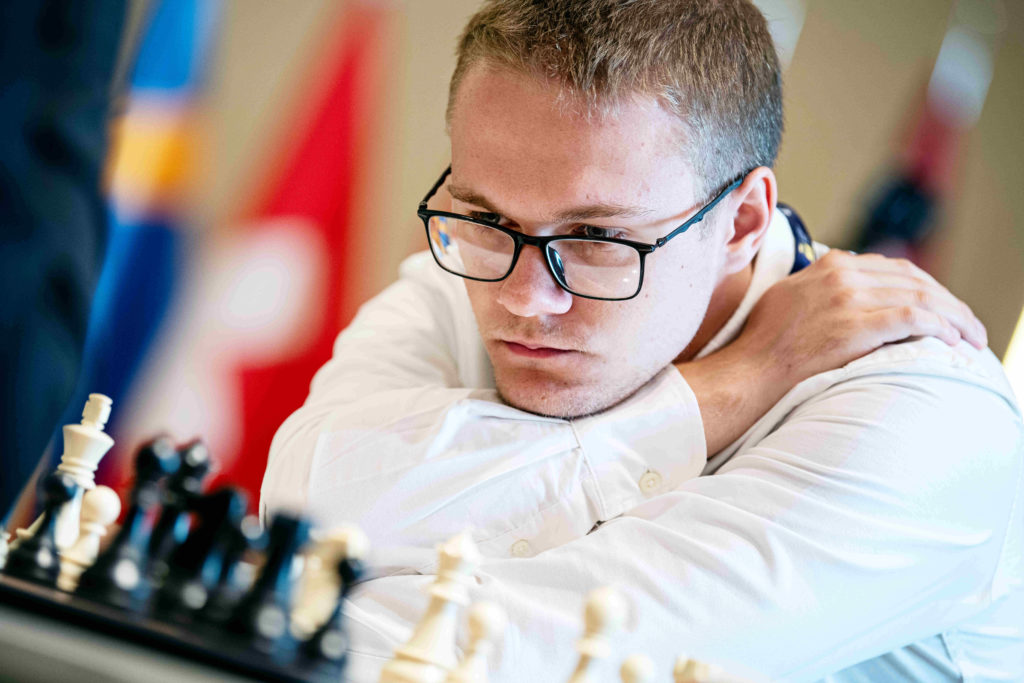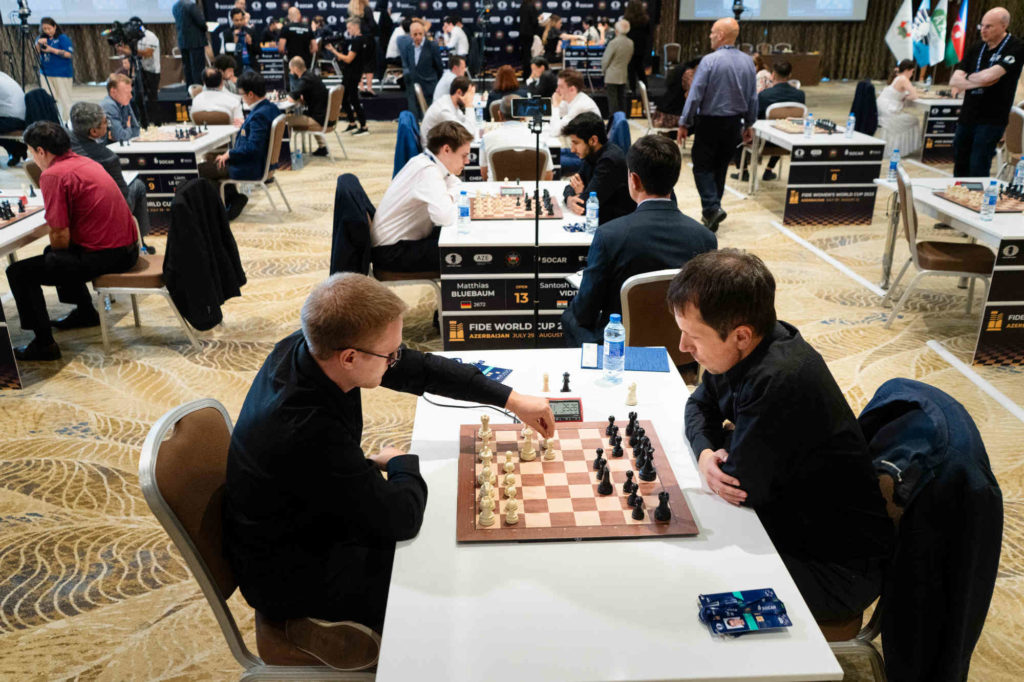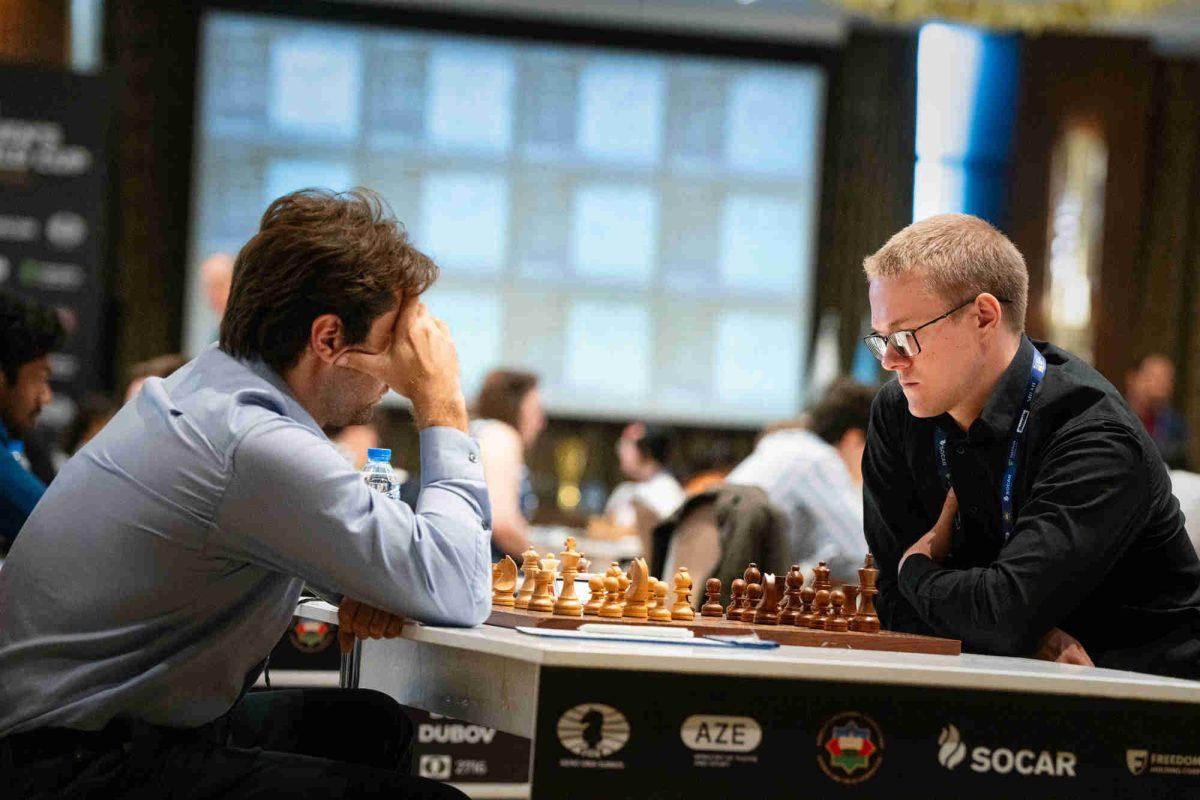Economics sophomore and Grandmaster Ivan Schitco qualified to play for the World FIDE Cup 2023 from July 29 to Aug. 24, and progressed until round three.

past Chess Olympiad, Schitco’s skill and hard work brought him to progress until round three in the difficult tournament.
Schitco was the first UTD student in history to make it this far in the FIDE World Cup. The FIDE World Cup takes place every two years and serves as the platform to crown the FIDE Champion. FIDE, recognized as the International Chess Federation, stands as one of the prominent governing bodies in chess, setting the regulations for both competitive and casual play. In this specific event, the ultimate distinction at stake is that of the FIDE World Champion for the year 2023, where Schitco participated and surpassed the first two rounds of the tournament.
There are several ways to be qualified to play in the FIDE tournament, but only 206 strong players were allowed in this tournament as the requirements were quite competitive. Schitco was one of those players, and he got in thanks to the Chess Olympiad he played in 2022. He represented the first board in Moldova’s team in the Chess Olympiad.

“Moldova performed really well and we got 6th place out of 200 countries … and got one spot to nominate for this World Cup, and considering that I was the captain for the Olympic team … they decided to nominate me,” Schitco said.
Schitco prepared for the matches through consistent training. Julio Sadorra, the coach of the UTD Chess team, said that Schitco put all his effort into training with his former coach in Moldova, and was fully supporting his triumph in the World Cup.
“I was checking on him, making sure he was training,” Julio said. “I was cheering him on [and] making sure he got someone with him.”
Schitco said that he wasn’t nervous when starting off in the tournament because he had played in the Chess Olympiad and other serious tournaments before. As a result, this helped him relax in the tournament and keep a cool spirit.
“In the first round, I had a very comfortable match. I drew with black and won with white,” Schitco said. “There weren’t long games, I managed to win before the tiebreak which is a special decider match played … on the third day… [I] basically got a rest day.”

White (Shackland) blundered by taking the pawn on c4, so Black (Ivan) found a mate in three moves by first checking
the King with the rook at the back rank, and then align the Rook on the B file with the Rook on the C file.
At this point, there is no way for White to save the game as checkmate is the next move for Black.
Despite falling short of advancing to round four, Schitco’s promising performance shines through. In fact, he managed to defeat Grandmaster Sam Shankland, who was 200 points higher in rating. This accomplishment shows that he has the potential to play in more rounds and eventually win the World Cup Title.
“We were playing in time trouble, so we had very little time left until the end of the game, and he made one very rushed decision which ended up in his king running into a checkmate,” Schitco said.
Julio said that this was a good win by Schitco. Moreover, Schitco played solid in the game as he was focused, and found a huge blunder created by the former US Champion Sam Shankland. As a result, Schitco won the game which shocked many in the chess community, but Julio saw it coming.
“Other people I hear say lucky, it’s a gift and all that,” Julio said. “But to me, I always thought of it as teamwork. It takes two to tango in a chess game. Someone has to make a mistake for someone to win. And Sam, his role was to create an opportunity for someone [Schitco].” Julio is truly proud of the remarkable result in the FIDE World Cup, and is sure that Schitco is fit as a good leader for the UTD Chess team thanks to his huge wins.
“Man, [referring to Schitco] you’re inspiring your teammates,”Julio said. “No matter who we are playing in the Pan Ams let’s say or other collegiate team events even if they have super [Grandmasters]. This is going to serve as a beacon of inspiration… and Ivan did it.”
Schitco has learned a lot about the importance of psychology within chess by figuring out what type of mindset you should be in when playing chess whether you are winning or losing. As a result, it helped him advance so far in this knockout system of the World Cup.
“No matter if you win, if you lose,” Schitco said. “It’s an experience which changes you and it changes you not only chess wise but also gives you confidence going into the next tournaments, because you don’t play them very often like players of such caliber.”





